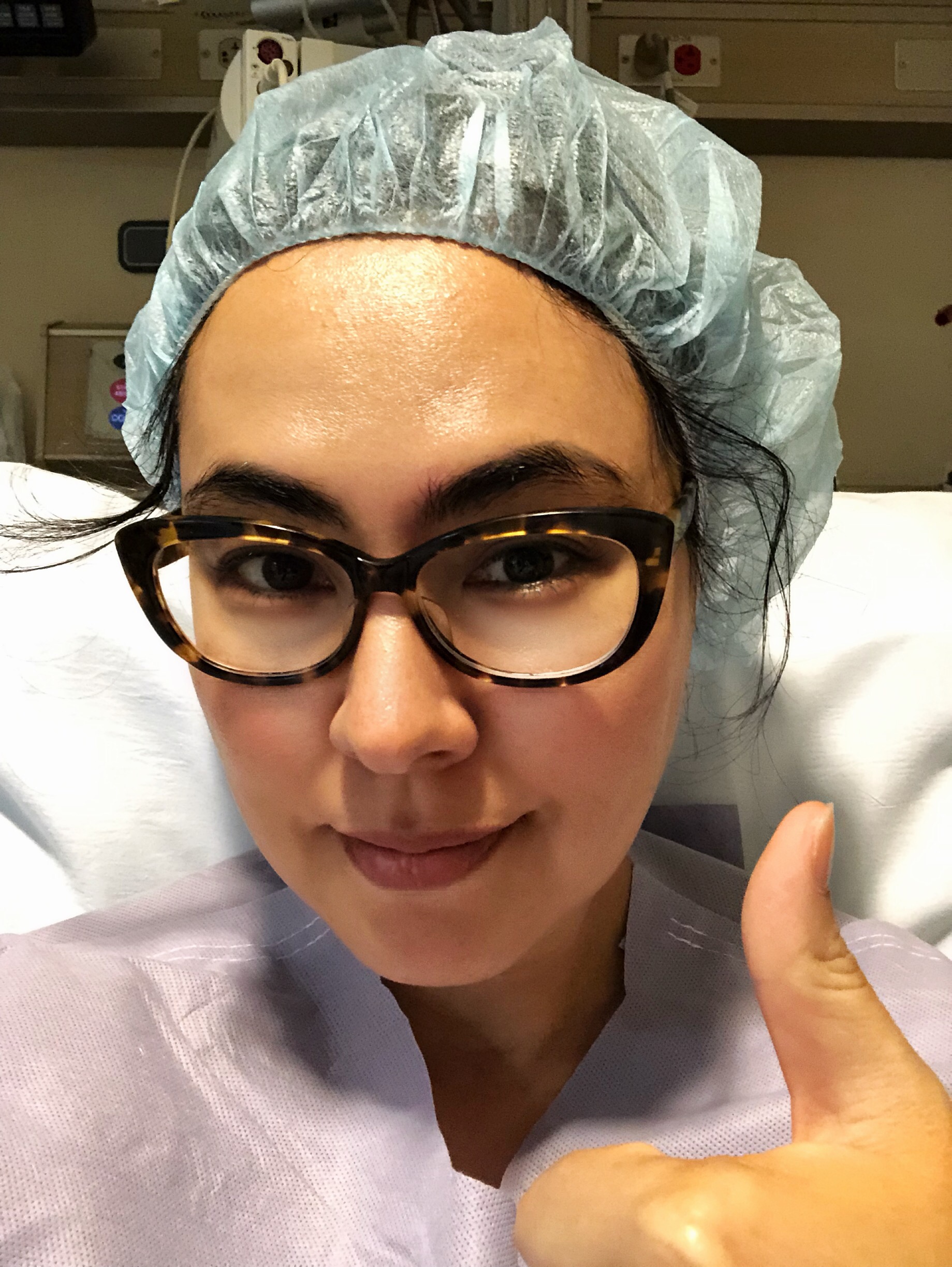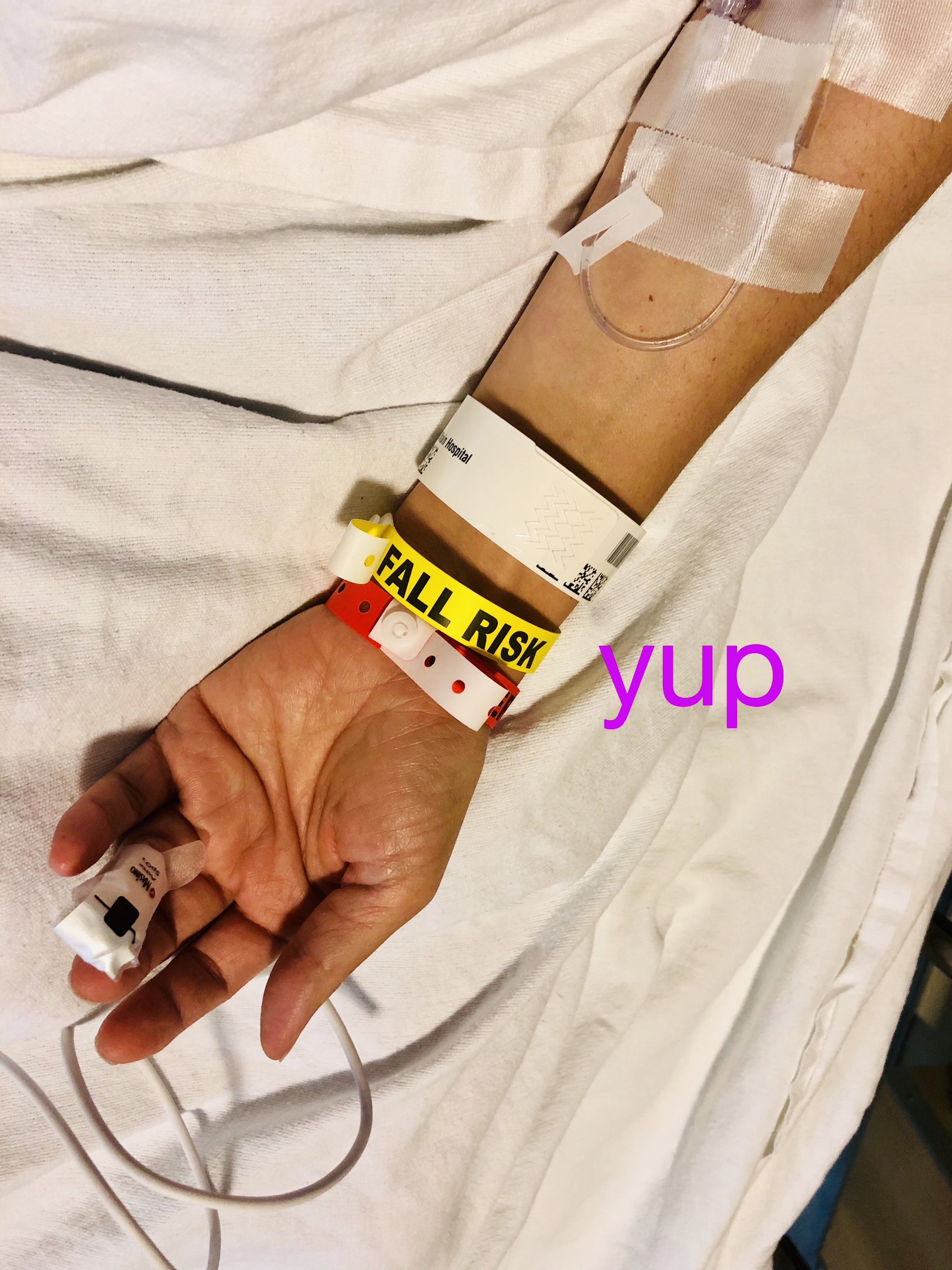The Sound of Silence
It’s been over 5 months since my last post, a record lull even for this staunch procrastinator. I could blame the holidays, or travel, or the customary chaos of life with 2 kids - all of which are true - but the fact of the matter is, I just haven’t felt obliged to write. Just as it’s much harder to motivate yourself to exercise again after a break (or so I hear…my strategy has been to just not do it in the first place) I’m discovering that writing really needs to be a regular enterprise to keep the momentum going and prevent total brain paralysis.
And yet it’s much easier said than done. Because at the end of the day, when the children have finally gone to sleep and the house is still, my inclination is to chat with my husband, or catch up on Game of Thrones, or get lost in a great book. Somehow it feels counterintuitive to the notion of relaxation, this prospect of opening my laptop and staring at a screen, willing myself to come up with something witty and compelling and worthwhile reading.
So what finally managed to break the dry spell, you ask? Exactly one week ago today, I had surgery to remove cysts on both my vocal cords. As part of the healing process I was told to observe strict vocal rest for 2 weeks. That means no talking, no whispering, no mouthing words (which engages the vocal cords, evidently. Who knew?). I’m only seven days in and already this imposed silence has been one of the most interesting and revelatory experiences of my life.
As you can imagine, it’s caused more than just a little disruption in my ability to parent effectively. Luna has been handling it like a champ, mostly because she understands the circumstances and can read my hastily scribbled notes, but also because it’s simply in her nature to be reasonable and forgiving. But then there’s Gioia, who regards the whole affair as a deeply personal affront and sinister plot on my part to eradicate any hope of her happiness. My inability to read or sing to her, to play with her properly, or to answer her 34,000 daily questions has resulted in some serious toddler rage. I’m talking menacing scowls and tiny balled fists that tremble with barely-contained longing to pound the sound out of me.
And the frustration hasn’t just been on her part. Pantomiming to a 3-year old is an exercise in futility that I highly recommend to any parent looking for an express ticket to Crazytown (local stops also include Eyeroll Junction, Head Shake Lake, and Facepalm Central). Also, having to stifle the impulse to call out whenever she’s about to do something dangerous or messy - both of which occur with alarming frequency - has been unimaginably difficult. So much so that when my mother suggested I send Gioia to stay with her for a few days, I surged out of the room to pack Gioia’s bag so fast I’m pretty sure I created a vacuum in my wake.
Parenting difficulties aside, it’s been eye-opening to truly appreciate just how crucial my voice is and has been to me. It took losing it to realize that the two aspects of myself that I take the most pleasure in both center around it: music and humor. Anyone who knows me well, knows that few things bring me more joy than singing, and few things bring me more gratification than getting a laugh. Both traits are ones that I employ regularly and are inextricably wrapped up in my identity, my personal history, and most of my fondest memories. Yet now here I am, trapped in a soundproof cage, unable to sing along to Hamilton or make the perfect well-timed quip and reduced to frantic knocking, clapping, and slapping of surfaces to get people’s attention.
It was a year and a half-long journey to finally getting the correct diagnosis for the problem. See, my voice started behaving oddly way back at the beginning of 2018. It started to break often, and it took effort to make sound - like when you’ve lost your voice and there are those first few milliseconds of hoarse air that come out before your actual voice kicks in. Songs I’d always been able to sing easily, suddenly became fraught with unreachable notes.
For the first few weeks I chalked the whole thing up to a particularly long recovery from a nasty bout of post-holiday colds. But after several months the problem was only worsening. I blamed other likely culprits, like the apple cider vinegar I’d been taking every morning (too caustic!) or the notorious L.A. smog (too smoggy!). My parents had instilled in me the belief that you only go to the doctor if the icy hand of death is knocking on your door, so I continued to self-diagnose and make lifestyle changes and hope for the best. I pushed through the cracking voice and the raspy, vocal fry-adjacent quality it was taking on. I stubbornly yodeled my way through those songs like a demented, prepubescent Tarzan. But my voice got worse still.
So I finally bit the bullet. I got on the ole interwebs and found an ENT who listened to my story, peeped down my throat with one of those scopes that look like it has no fucking business going anywhere near your throat, and told me it was a case of reflux. Phew! Problem solved! I was put on prescription acid inhibitors and told not to eat or drink within two hours of bedtime. Done. Only, after a couple of months, things were not improving. People started having trouble understanding me on the phone, I got asked frequently if I was sick, and my frustration at my vocal hi-jinx was starting to reach peak levels. So back I went (to the same ENT, because I make smart decisions) who took another peep with the fiber optic slim-jim and told me that - whoops! - there was actually a mass there. Oopsie-doopsies! Missed that lil’ rascal the first time around! I was advised to find a vocal therapist and book myself for 6 weeks of treatment, at the end of which I would have better control over my voice and breath, and the mass would likely shrink or disappear.
I’m going to save us both some time here: it didn’t work.
I decided that maybe it was time to stop being a moron and get a second opinion. Amazingly, I learned that a friend had recently had a similar experience and he highly recommended his doctor who, it turned out, is the throat guru to the stars and an expert on these types of maladies. So in demand was she that the earliest available appointment was 2 months away. Well, my voice wasn’t something I wanted to trifle with any longer so it was worth waiting for the best, even if that meant being Marge Simpson for another 8 weeks.
When I finally saw the doctor, I knew right away she was legit because she spritzed numbing spray in my throat before sending the slim-jim down. PROFESSIONAL. She saw the mass (which she assured me would never have resolved with any amount of vocal therapy) and we scheduled the surgery for a month and half after that.
And here we are now. So what sage wisdom have I gleaned these past 7 days of vocal blackout?
When people learn you can’t speak, they will suddenly & mysteriously be rendered mute as well. It’s CRAZY how much this happens. They’ll be talking to me one second and then as soon as I show them my little “I just had surgery and can’t speak” sign, that’s it…suddenly we’re all starring in a silent movie. A few days ago I went to the post office to mail a package and wrote a note on my phone asking what options were available for domestic shipping. I then watched as the kindly postal worker transformed into a mime, vigorously pointing to various signs and gesticulating so wildly that his watch flew off.
When you remove the option of talking, you’re a lot more measured about what you actually need to say. Because I know it’s going to take a lot more effort to get my point across, I’ve had to be discerning about which of them I want to convey. Do I need to berate Luna about picking up her dirty socks? No. Does it matter that it’s taking an extra few minutes for Gioia to stop playing and brush her teeth? No. Do I need to express my annoyance to Mike about an irritating thing that happened today? Nope. As such, I’ve found myself saving that energy for expressing the sentiments that really matter, and perhaps not so surprisingly, 9 times out of 10 they’re the positive ones. Like letting Luna know I’m proud of the way she got herself ready for school. Or telling Mike how grateful I was for the wonderful Mother’s Day he arranged for me. Or making Gioia understand how much I love our snuggles. The superfluous fluff of my normal, stream-of-consciousness way of communicating has given way to more thoughtful expression. As a mom, I often feel like too much of my time is spent nagging or berating or begging or threatening, and it’s actually been an immense relief to quiet that reactive, habitual voice. It’s a newfound dynamic that I’m hoping to nurture even after I’m able to speak again, because of this next discovery:
Less words can breed closeness. Mike told me day before yesterday that finding new ways of interacting has actually become a real bonding experience, and I couldn’t agree more. I find myself feeling closer not only to him, but to our children as well. Looking deeply and deliberately into someone’s eyes to try to get a message across really brings home the realization that you very rarely deeply and deliberately look into anyone’s eyes. So many conversations are carried out while in the middle of another activity, or punctuated by glances at our phones, or in a car, or in the midst of myriad other distractions. But when you have to actively hold someone’s attention, and search each other’s faces for understanding, it’s remarkable how much more meaningfully you communicate. It’s all expression and touch and movement, and what is at times awkward and comical is also primal and captivating. You literally can’t take your eyes off each other.
So here I am, mulling over my existence in monastic silence, keeping my fingers crossed that when I go in for my post-op check-up next Monday all will be well and my voice will be restored to its old, familiar timbre. My first “hello” will be to my doctor, and I have a feeling it will be an acutely emotional moment. Even more so when I say it to my loved ones again. I hope that I can carry forward the lessons this experience has taught me - to choose what I express with care, to connect with all the senses when engaged, and - most importantly -that Ariel had it a lot harder than I’ve ever given her credit for.

